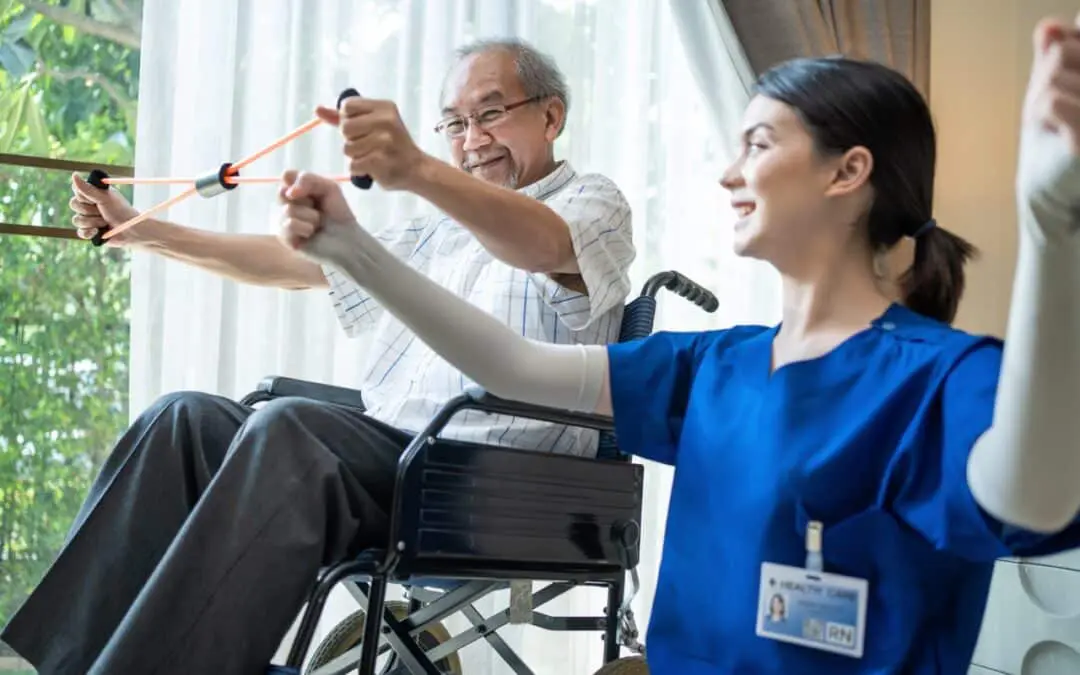If you need skilled nursing care, it’s important to know what types of services are available. Skilled nursing facilities offer a wide range of care options, from short-term rehabilitation to long-term care and everything in between. In this blog, we’ll take a closer look at the different types of care that are available at skilled nursing facilities.
Contents
Types of Care Available in Skilled Nursing Facilities
Skilled nursing facilities are facilities that provide a wide range of medical and nursing care services. The type of care that you receive at a skilled nursing facility will depend on your individual needs.
People who stay at skilled nursing facilities are those who have just been discharged from the hospital and need a higher level of care than what can be provided at home. They may also be individuals who have chronic health conditions that require regular medical attention.
Skilled nursing facilities offer both short-term and long-term care options. Short-term care is typically for people who have had a recent hospital stay and need time to recover before returning home. Long-term care is for those who require more ongoing medical attention and assistance with activities of daily living.
Skilled nursing facilities offer different types of care to seniors. Let us explore them below:
Physical Therapy
One of the most common types of care that skilled nursing facilities offer is physical therapy. Physical therapy can help seniors recover from a wide range of injuries and illnesses. It can also help seniors improve their mobility and reduce their risk of falls.
Physical therapy is needed by those who have recently undergone surgery or been hospitalized for a long time. It can also be helpful for seniors who have chronic conditions that cause pain or limit their mobility. For example, seniors who have had a stroke may benefit from physical therapy to help them regain their strength and mobility.
Occupational Therapy
Another type of care that skilled nursing facilities offer is occupational therapy. Occupational therapy can help seniors with activities of daily living, such as bathing, dressing, and eating. It can also help seniors improve their cognitive skills and memory.
Seniors who have recently had a stroke or other type of brain injury often need occupational therapy. It can also be helpful for seniors who have dementia or Alzheimer’s disease.
Speech Therapy
Skilled nursing facilities also offer speech therapy to seniors. Speech therapy can help seniors with communication and swallowing disorders. Seniors who have suffered from stroke or brain injury and have difficulty speaking or swallowing, as a result, may benefit from speech therapy.
Speech therapy can also be helpful for seniors who have dementia or Alzheimer’s disease because it can help them improve their communication skills and memory. Speech therapy aims to improve the quality of life for seniors by helping them regain their communication skills.
Nutritional Therapy
Nutritional therapy is another type of care that skilled nursing facilities offer. Nutritional therapy can help seniors improve their diet and nutrition. It can also help seniors who are struggling to maintain a healthy weight.
Seniors who have chronic health conditions, such as diabetes or heart disease, may benefit from nutritional therapy. This is because nutritional therapy can help them manage their condition and improve their overall health.
Nutritional therapy can also be helpful for seniors who have difficulty eating or digesting food because nutritional therapy can help them get the nutrients they need. Nutritional therapy can also help seniors at risk for malnutrition because it can help them improve their diet and nutrition.
IV Therapy
IV therapy is a type of care that skilled nursing facilities offer. IV therapy can help seniors who are dehydrated or have an electrolyte imbalance. It can also help seniors who are struggling to take medications orally.
IV therapy can also be helpful for seniors who have chronic health conditions, such as cancer or congestive heart failure. This is because IV therapy can help them get the medications they need to manage their condition.
Wound Care
Wound care is another type of care that skilled nursing facilities offer. Wound care can help seniors heal from wounds, such as pressure ulcers, diabetic ulcers, and surgical wounds.
Seniors who have chronic health conditions, such as diabetes or vascular disease, may benefit from wound care. This is because these conditions can increase the risk of wounds becoming infected.
Seniors who have had surgery or been hospitalized for a long time may also benefit from wound care. After all, there is a possibility that their surgical wounds may become infected.
Palliative Care

Palliative care refers to the type of care that is focused on relieving the symptoms of a severe illness. Palliative care can be helpful for seniors who have a chronic diseases, such as cancer or congestive heart failure.
Palliative care can also be helpful for seniors who are nearing the end of their life. This is because palliative care can help them manage their symptoms and make them more comfortable.
These are just some of the types of care that skilled nursing facilities offer. If you or a loved one are in need of skilled nursing care, be sure to ask about all the different types of care that are available. This way, you can be sure that you are getting the care that you need.
It’s important to remember that skilled nursing care is not exclusive to seniors. Anyone who has a chronic health condition or is recovering from a serious illness can benefit from skilled nursing care. With its wide range of services, skilled nursing care can help you or your loved one get the care and support you need to improve your health and quality of life.
Conclusion
The different types of care offered in skilled nursing facilities are very helpful in improving seniors’ quality of life. Luckily, skilled nursing facilities offer different types of care so that people who need skilled nursing care, such as seniors with chronic health conditions, can get the care they need. This is very important when it comes to guaranteeing that seniors will be able to live their lives to the fullest potential despite their chronic health conditions.

